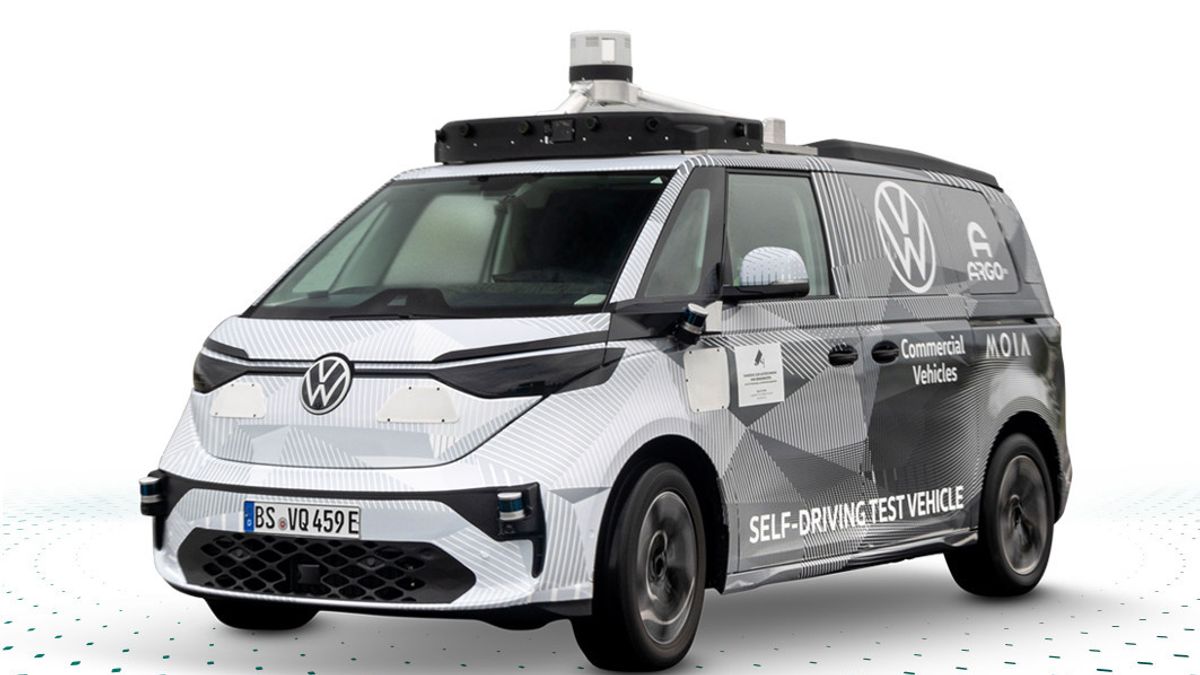JAKARTA - The latest self-driving startup that allows vehicles to roam the streets without a driver is Argo AI, a startup backed by Ford and Volkswagen. Last week, the company announced that it was testing driverless vehicles in Miami, Florida, and Austin, Texas. Argo employees will board the vehicle's passenger seat to test the company's robotaxi service before it opens to the public.
The announcement comes after a period of consolidation in the AV industry, which has left only a handful of well-funded companies to push for their vision of robotic cars as a solution to the car safety crisis that has gripped the nation for decades.
Argo has been testing its fourth-generation vehicles in Miami, Austin, and Washington DC, over the past few years, as well as in Pittsburgh, Detroit, and California. The company is also preparing to launch autonomous micro-delivery and delivery services with VW in Germany, using fifth-generation autonomous technology, starting in 2025.
Big news alert: We’re driverless in Miami & Austin!
From day one, we set out to tackle the hardest miles to drive & this milestone demonstrates our ability to scale an autonomy business in multiple cities where demand is highest. More: https://t.co/LtayIpEIch pic.twitter.com/ihw6bmPLJv
— Argo AI (@argoai) May 17, 2022
Argo is the latest startup to routinely test its vehicles without a human safety driver behind the wheel, following Waymo, Cruise and Motion.
However, Argo claims to be the first company to conduct driverless testing in two cities simultaneously. It emphasized that its vehicles would operate during “hours of the day,” an obvious reference to the fact that Cruise vehicles were only allowed to drive in San Francisco at night.
“The Argo is the first driverless car in two major American cities, operating safely among heavy traffic, pedestrians, and cyclists in the busiest of environments,” said Bryan Salesky, founder and CEO of Argo AI, in a statement. The Verge.
“From day one, we started covering the hardest distances to drive, in many cities, because that's where the density of customer demand is, and where our autonomous platform develops the intelligence needed to scale it into a sustainable business,” Salesky added.
Creating a driverless car is a big moment for the AV company, especially as it shows that the technology is mature enough to handle the core task of driving without a safety driver present to take the wheel in the event of a problem. Argo employees will sit in the passenger seat during this testing phase as the company prepares to launch its robotaxi service in the near future.
VOIR éGALEMENT:
Currently, only a handful of AV (auto vehicle) operators actually deploy driverless vehicles, also known as Level 4 autonomous vehicles, on public roads. Waymo, Alphabet's self-driving unit, has operated Level 4 vehicles in suburban Phoenix for several years, including trips to paying customers.
Cruise, which is majority-owned by General Motors, began operating Level 4 vehicles in San Francisco but did not cover paying customers.
Motion, a joint venture between Hyundai and Aptiv, is testing its L4 vehicle in Las Vegas. Yandex, the Russian tech giant, tested its Level 4 vehicle in Las Vegas during the Consumer Electronics Show in 2020 but has closed its operations in the US following Russia's invasion of Ukraine. Chinese technology company Baidu began testing its safe driverless vehicles in its home country in late 2020.
Argo said it would work with Lyft to launch a commercial ride-hailing service, starting first in Austin and Miami. The company is also working with Walmart on autonomous delivery services in these cities, including Washington, DC. The human safety driver will be driving the vehicle when the service is launched, with driverless operations integrated from time to time.
The English, Chinese, Japanese, Arabic, and French versions are automatically generated by the AI. So there may still be inaccuracies in translating, please always see Indonesian as our main language. (system supported by DigitalSiber.id)










